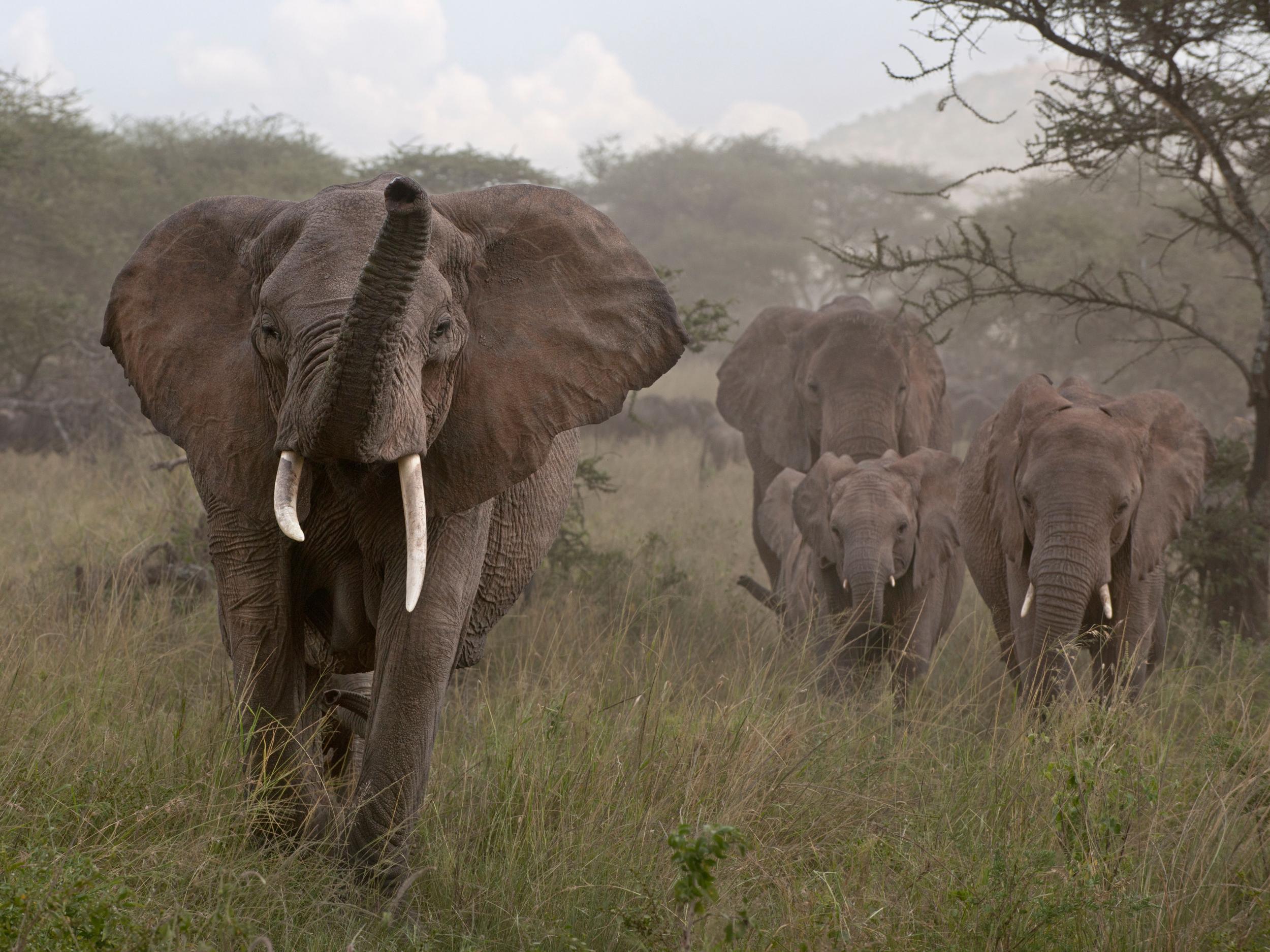UK ivory sales ban postponed again – after three-year delay
Exclusive: Ministers blame technical issues as conservationists fear law may be watered down, warning of more elephant killings

Britain’s long-awaited ban on ivory sales – already delayed by three years – has been postponed by another two months.
Conservationists say they are “extremely disappointed” because with every day that passes more elephants are slaughtered to meet consumer demand for trinkets made from tusks.
Ministers say they need more time to fix technical details but critics argue that background work should have been done before now.
Thousands of elephants are killed every year – it’s calculated that one is killed on average every 15-25 minutes –leaving the animal at risk of extinction.
The UK is the world’s largest exporter of legal ivory, according to the Environmental Investigation Agency.
Research has found hundreds of ivory items are still changing hands in the UK, with ivory from newly killed animals being passed off as antique, which may be legally sold, keeping the killings going.
The Ivory Act, described by ministers as “world-leading” and which bans imports, exports and sales, received royal assent three years ago last Monday.
But its implementation was delayed first by a legal challenge, which was defeated, and then by a government consultation on how to enact the law, more than two years after it had been passed.
Last week the European Commission announced new restrictions on the ivory trade, bringing an EU ban closer.
Now, when the ban had been expected around the three-year anniversary of the act, another delay has emerged.
This time it is down to “technical issues in developing a digital registration and certification system for dealing in exempted ivory", according to animal welfare minister Lord Goldsmith.
In a letter, seen by The Independent, he wrote: “In the Action Plan for Animal Welfare, I committed to implementing the Act by the end of this year and have said I will bring the ban into force in spring 2022.
“For us to achieve this, officials have been developing a digital registration and certification system for dealing in exempted ivory.
“Although significant progress has been made, there have been some technical issues in its development, and to proceed under the current timeline would risk introducing a system that does not work or is potentially not as close to the law as it needs to be to deliver one of the toughest ivory bans in the world.”
Lord Goldsmith writes: “Given these risks, I have made the decision to delay implementation of the Ivory Act by two months, with the opening of the registration and certification service to deal in exempted ivory to February 2022.
“This extra time will ensure that the digital service for exempted ivory is robust and meets the requirements of the Act.”
He said he still planned for the ban to take effect in spring.
But the International Fund for Animal Welfare (Ifaw) said it was extremely disappointed and feared a watering-down of the legislation.
James Sawyer, UK head of the charity, said responses to recent parliamentary questions have suggested people will be allowed to “gift, donate or bequeath items” to others.
“We are concerned this will enable unscrupulous traders to take advantage and continue to buy and sell ivory,” Mr Sawyer told Lord Goldsmith.
And he warned the government: “There is also continued refusal to implement a destruction or donation system for people who no longer wish to own their items of ivory and want to ensure they will not reappear on the market.”
He said many people who own ivory had asked the charity to destroy their items to ensure nobody profited from them in future.
This year, a 12-day research project by Ifaw discovered 913 ivory items on sale in the UK.
Ifaw says it has repeatedly pressed for a process for the public to donate ivory for destruction.
A government spokesperson said: “Our ivory ban is one of the toughest in the world, and the ban will come into force, as promised, in spring 2022 to help protect the world’s elephants.”
Join our commenting forum
Join thought-provoking conversations, follow other Independent readers and see their replies
Comments


Bookmark popover
Removed from bookmarks